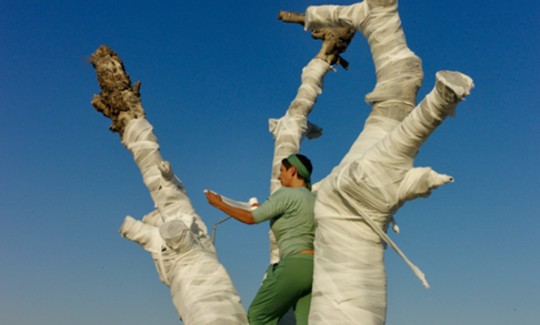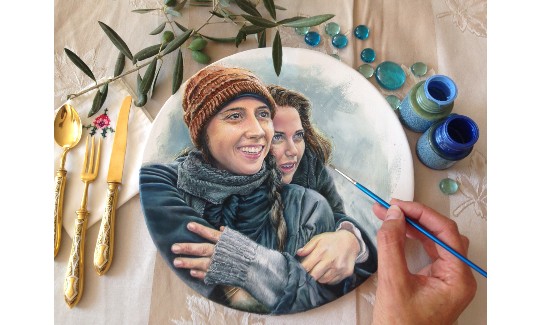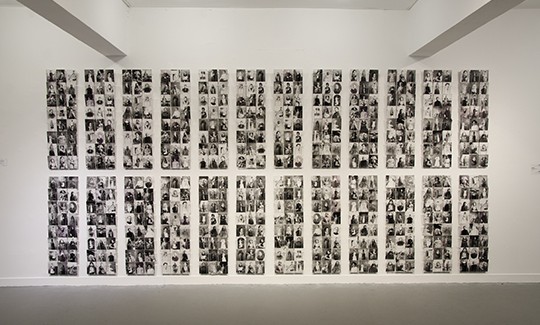Solidarity as a Means of Action
Group Exhibition
Saturday, 21.12.19, 20:00
Saturday, 01.08.20
:
Svetlana Reingold
More info:
04-6030800Much has been written on the subject of feminist solidarity, as a formative value that provides the political subject with a secure base from which to promote social struggles in various arenas. The concept of "solidarity," in its various meanings, has served in recent years as a framework for discussions in the feminist community. The call for solidarity is based upon the demand to dismantle supposedly competition in relations between women. The need for change is based on the understanding that such competition expresses an essentially patriarchal belief, according to which power and control of resources can only be achieved by joining a powerful figure, that is, a man. Fundamental to this belief is the masculine identification.
Renowned feminist thinker Adrienne Rich defines competition between women as "internalizing the values of the colonizer." Its meaning is that women place themselves beneath men, ignoring the qualities that they may themselves bring to the socio-political situation. The result is the acceptance of competitiveness, or the "polygamous condition," as natural and unavoidable. The "polygamous condition" weakens women's solidarity by means of a "divide and conquer" strategy. In the words of feminist activist and theoretician Bell Hooks: "We are taught that women are 'natural' enemies, that solidarity will never exist between us because we cannot, should not, and do not bond with one another […] We must unlearn [these lessons] if we are to build a sustained feminist movement. We must learn the true meaning and value of Sisterhood."
The call to solidarity is highly significant in light of ongoing attempts to strengthen ties between women in the global north and south. Post-colonialist discourse has argued that the Western political project in general, and feminism in particular, manifest Western norms that preserve the Western colonialist-imperialist view of Islamic and other cultures. According to prominent scholars in the field of feminism and gender, such as Lila Abu-Lughod, Western feminist conceptions are rooted in the liberal discourse, which is part of the colonialist discourse. Simona Sharoni and Rabab Abdulhadi also contend that transnational feminism faces the challenge of lack of sensitivity of feminist activists in the global north toward their counterparts in the global south. According to Sharoni and Abdulhadi, northern activists tend to overlook the nuances of cultural difference that distinguish between them and activists in the south.
The post-colonialist critique of Western feminism places limits on the possibility of a significant discussion regarding the establishment of alternative structures of solidarity between different groups of women. Based on this understanding, the current exhibition examines the call of contemporary feminism to formulate a "different criticism" that can open a political space welcoming multiple voices. The participating artists present the feminist challenge of creating a discourse that allows for fruitful interplay between women's many means of creating spaces of genderial, political, and social freedom. Their works promote the idea of solidarity as a means of action that connects between women on the basis of shared power and resources.
Through the call to solidarity these artists present a radical feminist vision of a redeemed society, in which every subject freely brings herself forward and achieves recognition of her cultural value. This feminist vision is expressed in the very existence of a courageous critical discourse regarding the forms of oppression activated against women in the post-Third World in general, and in the Middle East in particular. The artists seek to rise above the limitations of identity politics, in favor of a multicultural feminist politics of identification, belonging, and social change.
Participating Artists:
Iris Kensmil ,Arahmaiani Feisal , Masha Rubin, Ariane Littman,
Shirley Siegal, Mathilde ter Heijne, Raya Bruckenthal, Shirin Neshat




